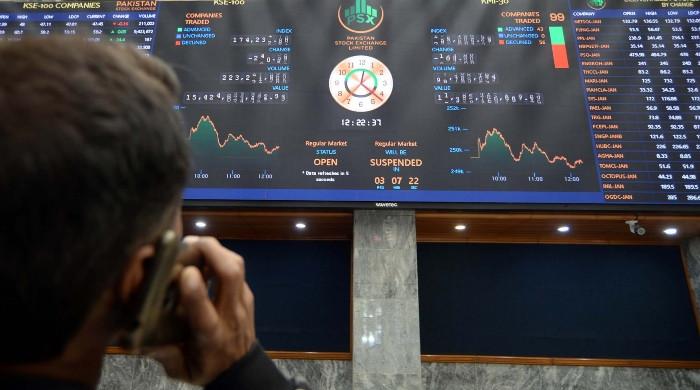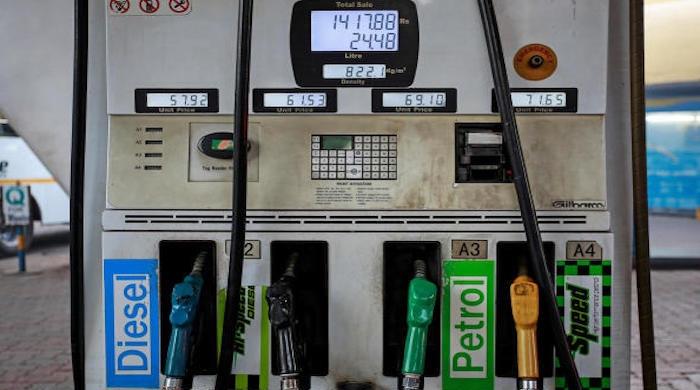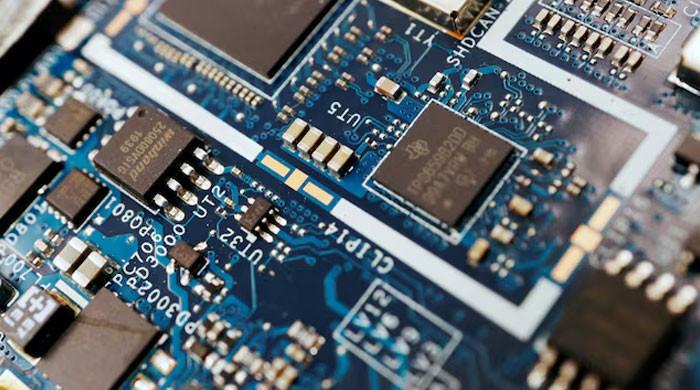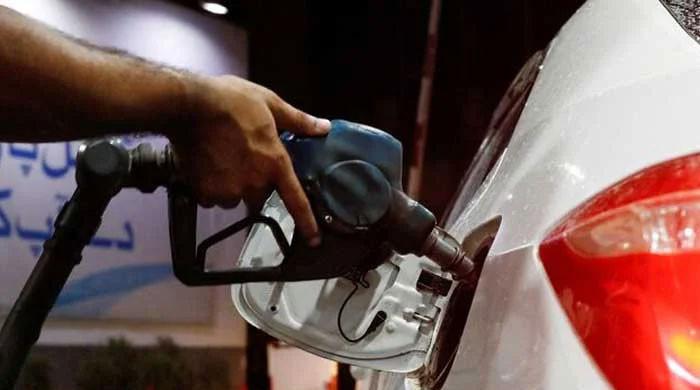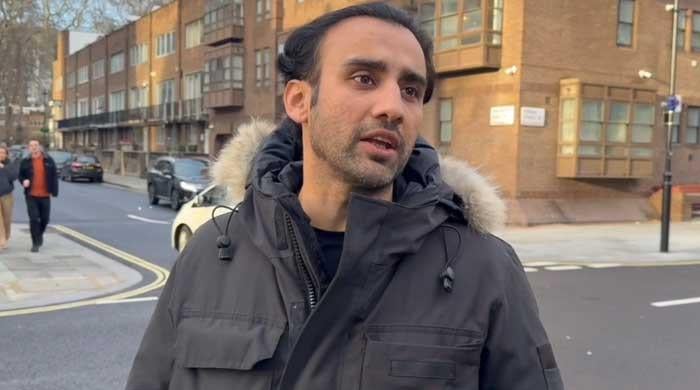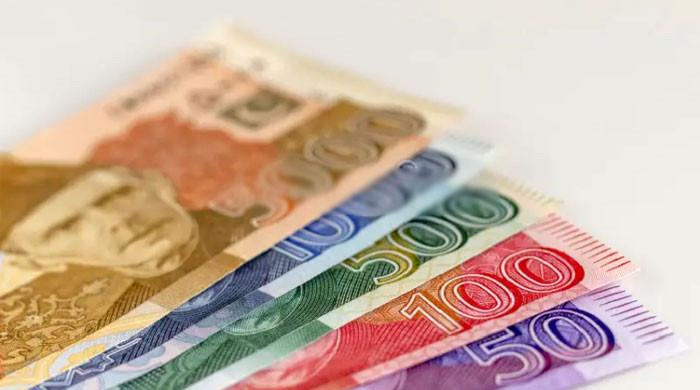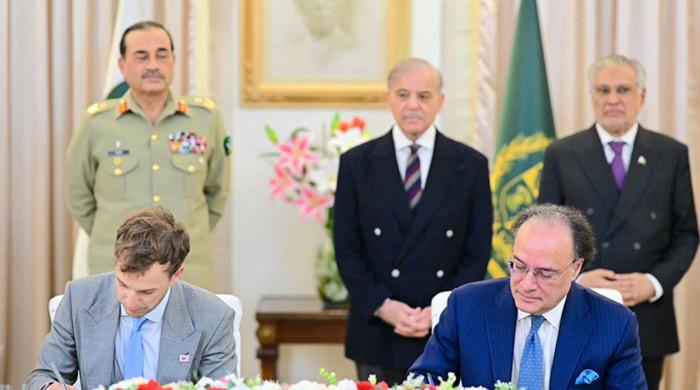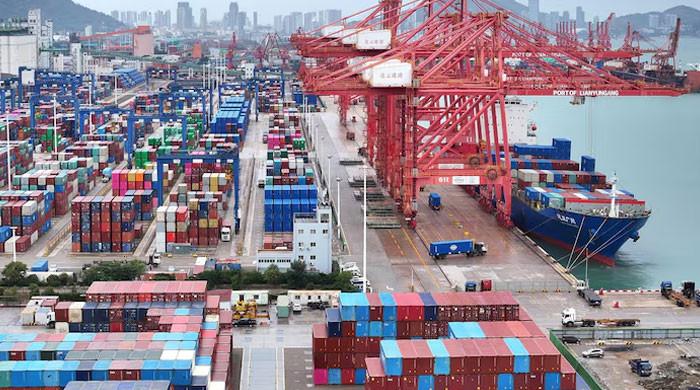FBR to give traders 40-day time to switch over to digital mode of payments
From November 1, it will be mandatory for companies to make payments on expenditures exceeding Rs.250, 000 through digital mode only
September 20, 2021
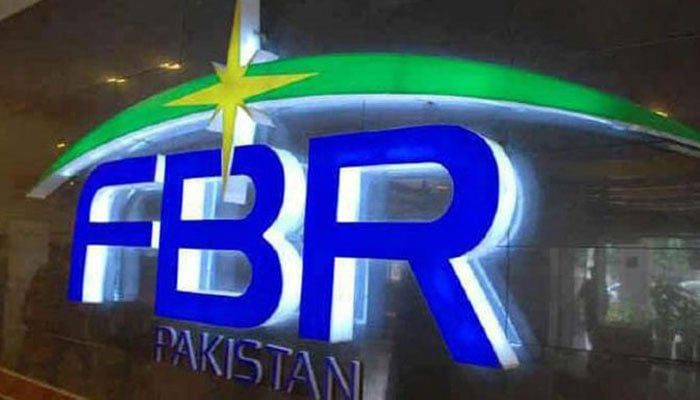
- FBR is mulling to give traders 40 days’ time to switch over to the digital mode of payments, says spokesperson.
- Cross or open cheques do not carry the “purpose” of the payment or its relationship with the invoice, he adds.
- The new ordinance has restricted the scope of payments via traditional banking channels on account of expenditures exceeding Rs.250, 000.
ISLAMABAD: In a bid to facilitate the business community, the Federal Board of Revenue (FBR) is considering allowing the corporate taxpayers a grace period of 40 days to switch over to the digital mode of payments.
In a series of tweets, the FBR spokesperson said that the tax collector was mulling to give traders 40 days’ time to switch over to the digital mode of payments.
From November 1, it will be mandatory for companies to make payments on expenditures exceeding Rs.250, 000 through digital mode only, he added.
In the intervening period, the corporate taxpayers may use the traditional banking transaction methods including cross cheques, cross-bank drafts, cross pay orders, or any other crossed banking instrument as long as those are compliant with the law, said the spokesperson.
“The FBR vide the Tax Laws (3rd Amendment) Ordinance, 2021, (the New Ordinance) has introduced significant changes to the Income Tax ordinance, 2001 with a view to the documentation of the economy, capture the supply chains, and broaden the tax base,” he added.
He maintained that the new ordinance has restricted the scope of payments via traditional banking channels on account of expenditures exceeding Rs.250, 000 to taxpayers other than companies.
However, expenditures on account of utility bills, freight charges, travel fair, and payment of taxes and fines would continue to be admissible either paid in cash or traditional banking instruments, he added.
The purpose behind this legislative enactment is to encourage digital payments and discourage traditional mode of transactions by the corporate sector in the first phase.
It is pertinent to mention here that currently, grey transactions (hiding/suppressing sales invoices and un-reconciled payments through open/revolving cheque or cash) are highly prevalent in business value chains.
The spokesperson said that almost 99% of all business transactions are on cash/cheque. Moreover, 3rd party payments are highly prevalent in organized and informal sector whereby businesses do not use their own bank accounts when making payments for supplies, he added.
“This is highly prevalent in supply chains and has become an accepted norm. Likewise, cross cheques create financial inefficiency due to a clearing period of 1-3 days,” the FBR added.
Similarly, cross or open cheques do not carry the “purpose” of the payment or its relationship with the invoice, he added.
Despite many attempts to increase documentation of supply chains such as WHT and further tax, the number of unregistered distributors and retailers remains high whereby sales are suppressed and due income tax is completely avoided.
The spokesperson further said that FBR, in the meantime, is also engaging SBP to issue necessary instructions to operationalise this important provision of law as well as encourage the banking sector to facilitate the corporate businesses to accomplish digitization within the stipulated timeframe.
President Alvi promulgates new tax laws
Earlier on September 17, President Arif Alvi had promulgated new tax laws, empowering the authorities to disconnect mobile phones/SIMS, electricity and gas connections of persons who are required to file tax returns but fail to appear on the Active Taxpayer List (ATL).
The president had promulgated the Tax Laws (Third Amendment) Ordinance 2021 for allowing the Federal Board of Revenue (FBR) to share its data with the National Database and Registration Authority (NADRA) with the objective to broaden the tax net.
NADRA shall share its records and any information available or held by it with the Board, as per the ordinance.
The ordinance contains strict penalties for persons who do not file tax returns. A penalty of Rs 1,000/- per day of default has been included in the Ordinance.
The government has also increased the amount of penalty for tier-1 retailers who are not integrated with the FBR and imposed an additional advance tax on rates ranging from 5% to 35% on professionals using domestic electricity connections.




